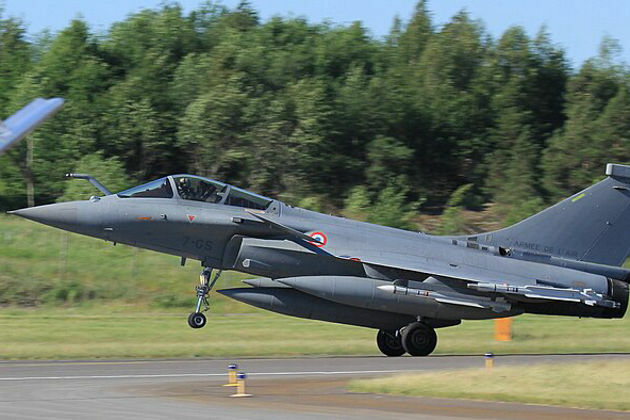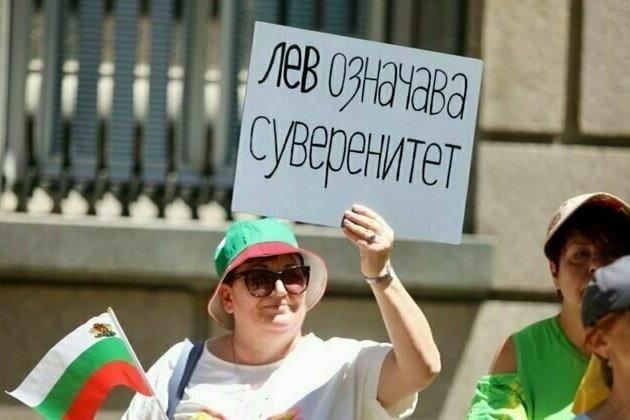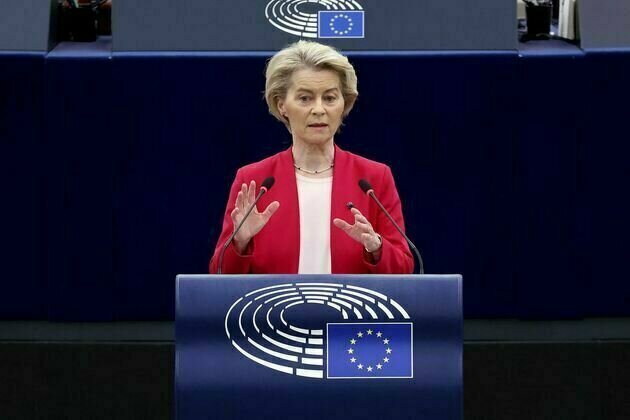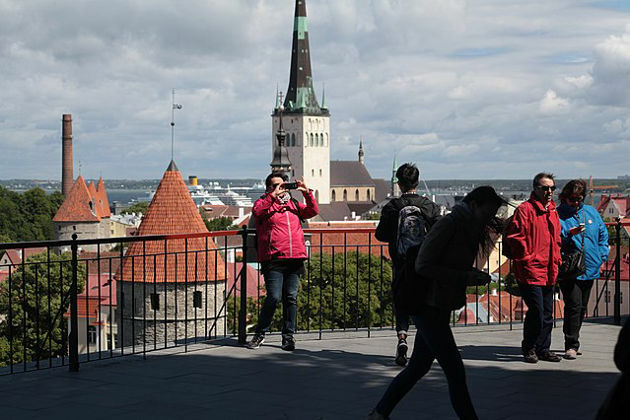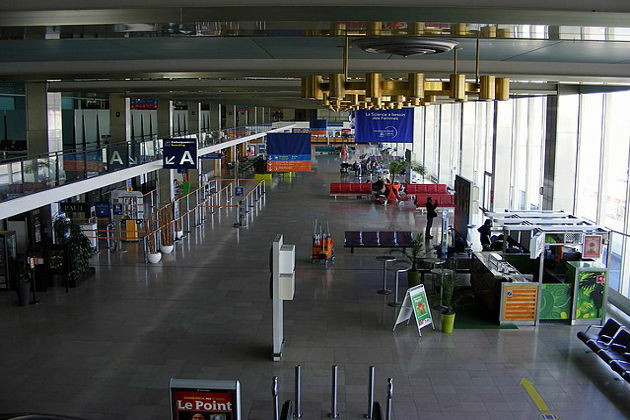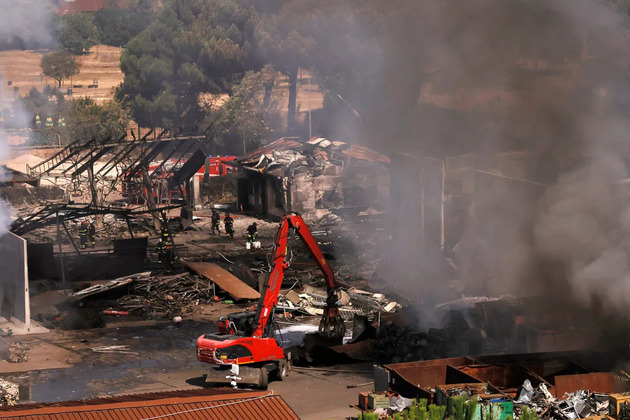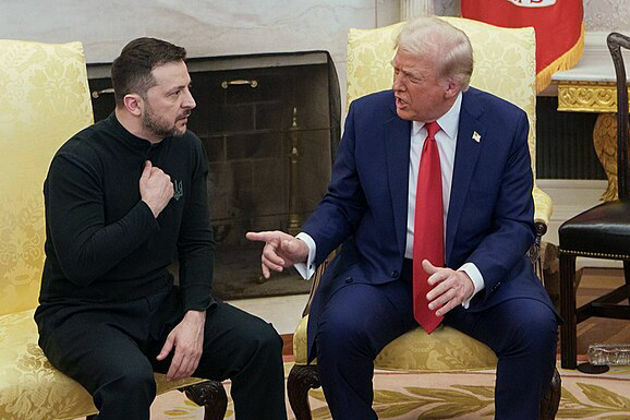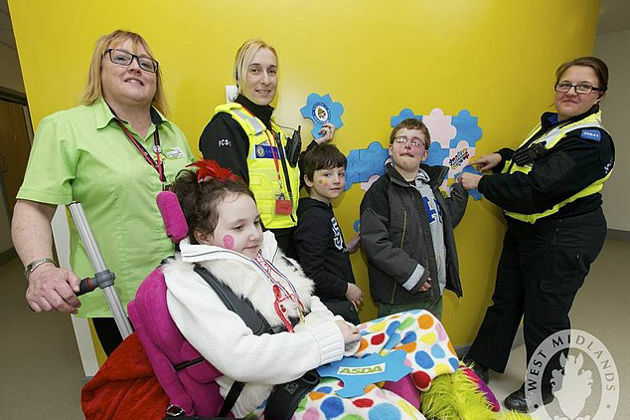From Constant Pain to Walking again: The Story of a Radiation Patient
International Atomic Energy Agency
11 Sep 2019, 17:37 GMT+10
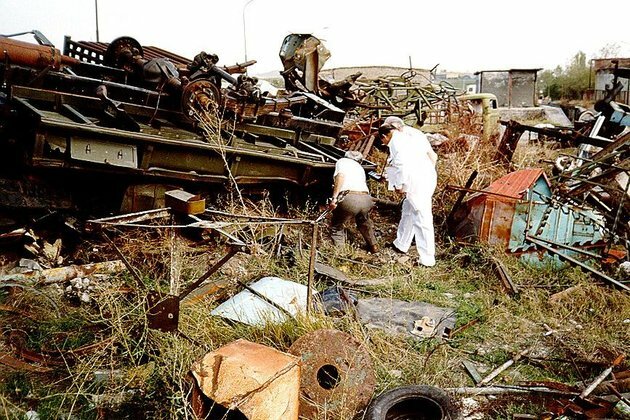
In 1997, a radiological accident in Lilo, Georgia resulted in the exposure of 11 people to high doses of radiation over an extended period of time. The exposed persons developed severe radiation induced skin injuries. Upon request, the IAEA provided assistance to Georgia and all of the 11 people received medical treatment. However, the health of one of them, referred to as "Patient 3CG" to protect his identity, highly deteriorated in 2016. Upon a new request for assistance by Georgia, with support from the Government of France, facilitated by the IAEA earlier this year, Patient 3CG received follow-up medical treatment which has significantly improved his quality of life.
"I was unable to walk without support, I was in constant pain and I feared about my future," said Patient 3CG about his life following his accidental exposure to radiation. "Thanks to international cooperation, I have an improved life. I am grateful for the highly competent and experienced multidisciplinary team who worked together to help me".
Radiation burns from radioactive sources out of regulatory control
Patient 3CG is a 43-year-old man living in Georgia. He was a soldier in the Georgian Army in 1997, stationed at the Lilo Training Detachment of Frontier Troops, not far from the capital, Tbilisi. Between April and August 1997, Patient 3CG and 10 other soldiers developed skin lesions and experts diagnosed these as severe radiation burns. Georgia requested assistance from the IAEA in October 1997 to evaluate the radioactive contamination at the site and to examine and treat the 11 patients. The patients were treated at specialized hospitals in France, Germany and Russia. The IAEA further supported Georgia in the recovery of the radioactive sources, the characterization of the sources and in the performance of a radiological survey of the accident site.
After investigation of the site, it was determined that sealed radiation sources were stored without following established regulatory procedures. This resulted in the radiation exposure of the 11 persons.
Patient 3CG was taken to the Percy Military Hospital in France in 1997 for a skin autograft. His health improved after the skin autograft and the subsequent treatment in 1997 and 1998. However, his medical condition deteriorated in the last decade. In May 2016, the IAEA Incident and Emergency Centre received a request from the Georgian Agency of Nuclear and Radiation Safety for additional medical assistance for Patient 3CG.
"The health situation of Patient 3CG was critical. No local physicians could provide the required specialized care in Georgia and we requested the support of the IAEA through the IAEA Response and Assistance Network (RANET), in accordance with the Convention on Assistance in the Case of a Nuclear Accident or Radiological Emergency," said Levan Davitashvili, Georgia's Minister of Environmental Protection and Agriculture.
In March 2019, Patient 3CG was brought once again to the Percy Military Hospital in France. He received innovative medical treatment jointly provided by the French Institute for Radiological Protection and Nuclear Safety (IRSN), Armed Forces Blood Transfusion Center (CTSA) and the Percy Military Hospital.
"It was clear Patient 3CG was in a great deal of pain and had been for some time. His walking function was limited and the impact on his quality of life was severe. We chose to proceed with plastic surgery, a Taylor flap combined to Mesenchymal Stem Cell injections", said Professor Eric Bey, Head of the Plastic Surgery Department, Percy Military Hospital.
"The patient represented a complex case from a medical perspective due to the characteristics of the irradiation and consequent local radiation injury. This evolution is well known with recurrences of injuries with new necrosis and risk of malignant transformation many years post irradiation so by documenting the medical procedures and reporting on them, we can use the case as a learning opportunity for other countries. It is important to perform local treatment and psychological support as part of the clinical follow up of this irradiated patient".
Patient 3CG's radiation injury is now healed, and he has no open wounds. He is able to walk again and he is not under the unbearable constant pain he had to live with for years.
RANET
RANET is an IAEA mechanism to support States in fulfilling their obligations under the Convention on Assistance in Case of a Nuclear Accident or Radiological Emergency. RANET helps to minimize the actual or potential radiological consequences of a nuclear or radiological incident or emergency for health, environment and property. It also allows for advice and assistance to be passed on to the requesting State on response activities undertaken on the scene of an emergency to mitigate its impact.
A side event during the 2019 General Conference will explore the results of the assistance mission with inputs from Georgia, France and the IAEA. Patient 3CG will speak in a video message. Wednesday, 18 September 2019, 11am in Conference Room M5.
Further details about the radiological accident at Lilo, Georgia, can be found in the IAEA Accident Report.
In 1997, a radiological accident in Lilo, Georgia resulted in the exposure of 11 people to high doses of radiation over an extended period of time. The exposed persons developed severe radiation induced skin injuries. Upon request, the IAEA provided assistance to Georgia and all of the 11 people received medical treatment. However, the health of one of them, referred to as "Patient 3CG" to protect his identity, highly deteriorated in 2016. Upon a new request for assistance by Georgia, with support from the Government of France, facilitated by the IAEA earlier this year, Patient 3CG received follow-up medical treatment which has significantly improved his quality of life.
"I was unable to walk without support, I was in constant pain and I feared about my future," said Patient 3CG about his life following his accidental exposure to radiation. "Thanks to international cooperation, I have an improved life. I am grateful for the highly competent and experienced multidisciplinary team who worked together to help me".
Radiation burns from radioactive sources out of regulatory control
Patient 3CG is a 43-year-old man living in Georgia. He was a soldier in the Georgian Army in 1997, stationed at the Lilo Training Detachment of Frontier Troops, not far from the capital, Tbilisi. Between April and August 1997, Patient 3CG and 10 other soldiers developed skin lesions and experts diagnosed these as severe radiation burns. Georgia requested assistance from the IAEA in October 1997 to evaluate the radioactive contamination at the site and to examine and treat the 11 patients. The patients were treated at specialized hospitals in France, Germany and Russia. The IAEA further supported Georgia in the recovery of the radioactive sources, the characterization of the sources and in the performance of a radiological survey of the accident site.
After investigation of the site, it was determined that sealed radiation sources were stored without following established regulatory procedures. This resulted in the radiation exposure of the 11 persons.
Patient 3CG was taken to the Percy Military Hospital in France in 1997 for a skin autograft. His health improved after the skin autograft and the subsequent treatment in 1997 and 1998. However, his medical condition deteriorated in the last decade. In May 2016, the IAEA Incident and Emergency Centre received a request from the Georgian Agency of Nuclear and Radiation Safety for additional medical assistance for Patient 3CG.
"The health situation of Patient 3CG was critical. No local physicians could provide the required specialized care in Georgia and we requested the support of the IAEA through the IAEA Response and Assistance Network (RANET), in accordance with the Convention on Assistance in the Case of a Nuclear Accident or Radiological Emergency," said Levan Davitashvili, Georgia's Minister of Environmental Protection and Agriculture.
In March 2019, Patient 3CG was brought once again to the Percy Military Hospital in France. He received innovative medical treatment jointly provided by the French Institute for Radiological Protection and Nuclear Safety (IRSN), Armed Forces Blood Transfusion Center (CTSA) and the Percy Military Hospital.
"It was clear Patient 3CG was in a great deal of pain and had been for some time. His walking function was limited and the impact on his quality of life was severe. We chose to proceed with plastic surgery, a Taylor flap combined to Mesenchymal Stem Cell injections", said Professor Eric Bey, Head of the Plastic Surgery Department, Percy Military Hospital.
"The patient represented a complex case from a medical perspective due to the characteristics of the irradiation and consequent local radiation injury. This evolution is well known with recurrences of injuries with new necrosis and risk of malignant transformation many years post irradiation so by documenting the medical procedures and reporting on them, we can use the case as a learning opportunity for other countries. It is important to perform local treatment and psychological support as part of the clinical follow up of this irradiated patient".
Patient 3CG's radiation injury is now healed, and he has no open wounds. He is able to walk again and he is not under the unbearable constant pain he had to live with for years.
RANET
RANET is an IAEA mechanism to support States in fulfilling their obligations under the Convention on Assistance in Case of a Nuclear Accident or Radiological Emergency. RANET helps to minimize the actual or potential radiological consequences of a nuclear or radiological incident or emergency for health, environment and property. It also allows for advice and assistance to be passed on to the requesting State on response activities undertaken on the scene of an emergency to mitigate its impact.
A side event during the 2019 General Conference will explore the results of the assistance mission with inputs from Georgia, France and the IAEA. Patient 3CG will speak in a video message. Wednesday, 18 September 2019, 11am in Conference Room M5.
Further details about the radiological accident at Lilo, Georgia, can be found in the IAEA Accident Report.
 Share
Share
 Tweet
Tweet
 Share
Share
 Flip
Flip
 Email
Email
Watch latest videos
Subscribe and Follow
Get a daily dose of Germany Sun news through our daily email, its complimentary and keeps you fully up to date with world and business news as well.
News RELEASES
Publish news of your business, community or sports group, personnel appointments, major event and more by submitting a news release to Germany Sun.
More InformationEurope Business
SectionBeijing blamed for covert disinformation on French fighter jet Rafale
PARIS, France: French military and intelligence officials have accused China of orchestrating a covert campaign to damage the reputation...
Beijing hits back at EU with medical device import curbs
HONG KONG: China has fired back at the European Union in an escalating trade dispute by imposing new restrictions on medical device...
Shein hit with 40 million euro fine in France over deceptive discounts
PARIS, France: Fast-fashion giant Shein has been fined 40 million euros by France's antitrust authority over deceptive discount practices...
Von der Leyen blames Russia for no-confidence motion
The EU chief has labeled her critics conspiracy theorists European Commission President Ursula von der Leyen has dismissed efforts...
Bulgarias Euro Adoption Divides Public
Bulgaria is set to become the newest member of the eurozone on January 1, 2026. While European Union officials have approved the move,...
EU seeks to rebalance economic ties with China
BRUSSELS, 8th July, 2025 (WAM) -- Ursula von der Leyen, President of the European Commission, has announced that the European Union...
Europe
SectionIreland’s citizens undeterred as Europe swelters in record heat
DUBLIN, Ireland: Despite extreme heat gripping much of mainland Europe, Irish holidaymakers are pressing ahead with their travel plans,...
Beijing hits back at EU with medical device import curbs
HONG KONG: China has fired back at the European Union in an escalating trade dispute by imposing new restrictions on medical device...
Summer travel in chaos as French air traffic controllers walk off job
PARIS, France: A strike by French air traffic controllers demanding improved working conditions caused significant disruptions during...
Gas station blast injures 40 in Rome, kids narrowly escape
ROME, Italy: Quick thinking by emergency responders helped prevent greater devastation after a gas station explosion in southeastern...
Weapons pause by Trump signals shift away from foreign wars
WASHINGTON, D.C.: President Donald Trump is drawing praise from his core supporters after halting key arms shipments to Ukraine, a...
Ireland High Court hears of crisis in special needs school admissions
DUBLIN, Ireland: The High Court has heard that some parents of children with special needs may be forced to give up their jobs to care...

